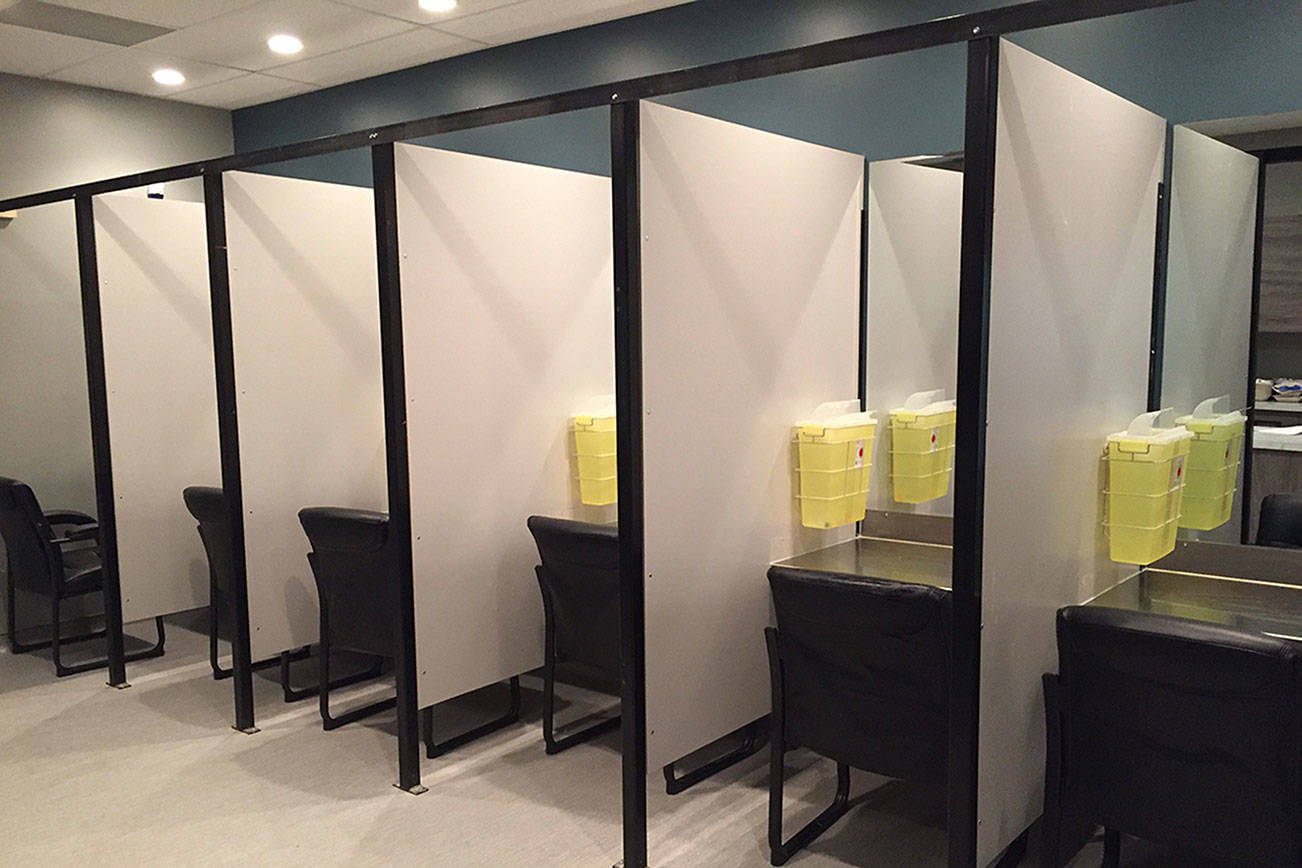Safe drug consumption sites were a hot topic throughout much of 2018, with contentious debates both for and against them, but over the past year the conversation has been more muted.
A couple of key things happened over the past 12 months that put a damper on local efforts. The first was a lawsuit filed by the U.S. Attorney in Philadelphia, which tried to block proposed injection sites in that city. The second was an announcement from U.S. Attorney Brian Moran in Seattle, who threatened the same should safe consumption sites move forward here, KUOW reported.
In October, a U.S. District Court judge in Philadelphia ruled that safe consumption sites do not violate federal drug laws, according to NPR. The ruling allows that city’s site to move forward, but an appeal was expected.
Safe consumption sites saw support in King County and Seattle. Because of a backlash, sites could only be placed in cities that agreed to host them. Seattle was one of those cities — and may hold the key to creating them in the Pacific Northwest.
Activists are taking stock, including Jesse Rawlins, the spokesperson for Yes to Safe Consumption Sites. The organization is part of the Public Defender Association and has pushed for bringing the sites — which are used in Canada and Europe — to King County in an attempt to curb overdose deaths.
“I’m definitely optimistic, I think again (Seattle Mayor Jenny) Durkan in particular, she campaigned on implementation of safe consumption and the city council has shown a lot of leadership in allocating resources through their legislative budget process, and the mayor has not made as much movement,” he said. “So I think there is a lot of opportunity for executive branches in local government to make movement on this.”
Rawlins said Seattle could be a national and local leader in implementing what he called evidence-based practices like safe consumption sites.
On the other end, groups like Citizens for a Safe King County have been trying to block the sites from opening. Last fall, the group tried to place I-27 on the ballot, which would have prevented the county from spending money on funding the sites. The Washington State Supreme Court struck down the initiative, saying it would have infringed on the county’s right to set its own budget.
As the county has struggled to figure out whether it will create safe consumption sites, overdoses both nationally and locally have remained high. There’s also signs that it has turned from a prescription opioid epidemic into a heroin and fentanyl crisis.
The King County Medical Examiner’s Office showed that 409 people died from drug overdoses in 2018, an increase from 383 in 2017. Fentanyl overdoses were also higher in 2018 when compared to previous years. Three high school students have also died in recent months in the county because of fentanyl overdoses.
Safe consumption sites were a recommendation of the King County Heroin and Opioid Task Force. It’s also one that has a relatively long track record in Vancouver, B.C., where the sites were started in 2003. Several reports since the sites opened showed either neutral or positive results, despite critics who blame it for creating and encouraging drug use.
One study on the Vancouver site, published in The Lancet in 2011, showed there was already a 35% reduction in overdoses in the vicinity of Insite, the safe consumption site. This was compared to the 9.3% reduction in other parts of Vancouver. It was also before Canada began dealing with its much deadlier fentanyl overdose epidemic.
At the local level, King County Executive Dow Constantine’s communications manager Alex Fryer said in an email that Seattle is taking the lead on this issue, and that he had no new comment.
Dan Nolte, a spokesperson for Seattle’s City Attorney’s office, said while they can’t advise whether the city should move forward, they provide legal guidance to the city. Representatives from the Seattle City Council did not return a request for comment by deadline.
“It puts us in a tough situation because all the advice and insight we gleaned from lawsuits elsewhere, the advice we give to the mayor is protected by attorney-client privilege,” Nolte said. “It’s ultimately their call.”
The U.S. District Court in Philadelphia doesn’t set precedent for district courts here, Nolte said, but it’s likely that local representatives are paying attention regardless.


